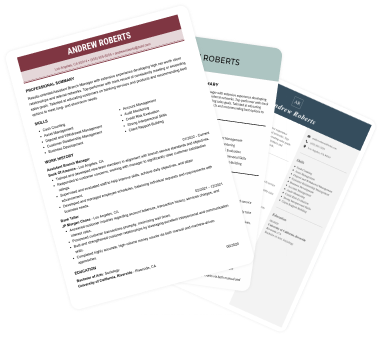Create a professional CV now!
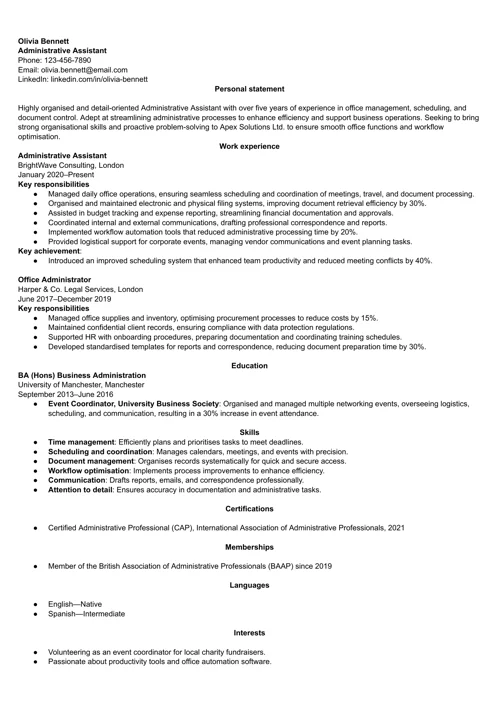 NO
NO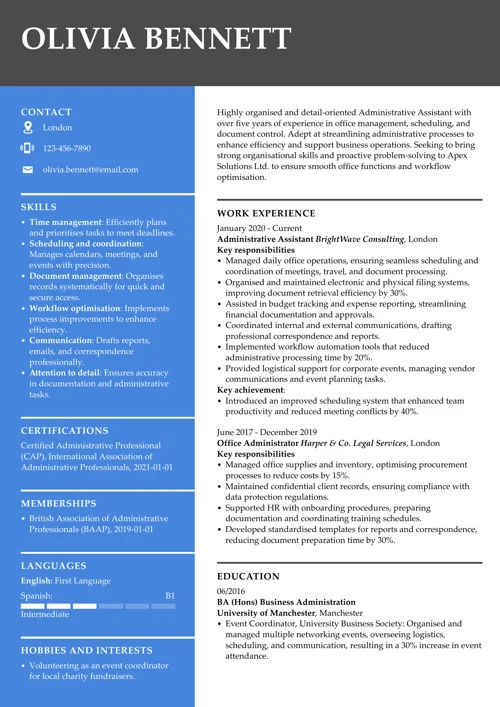 YES
YESLast updated on 29 December, 2025
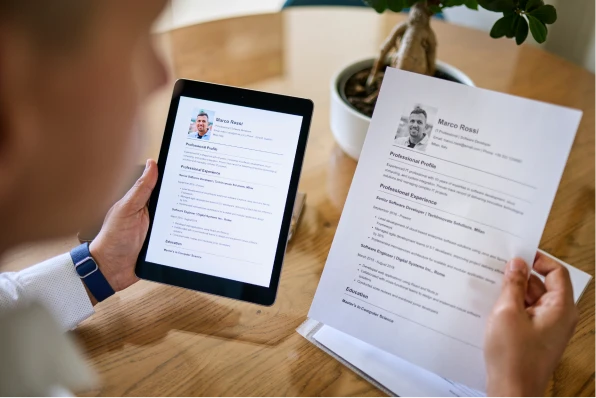
Our customers have been hired by*:
Ever met someone who always seems two steps ahead—never misses a deadline, keeps projects on track, and somehow makes it all look effortless? That’s not luck. It’s organisation.
Organisational skills aren’t just a nice-to-have—they’re a career essential. These skills help you cut through chaos, prioritise with precision, and get things done. In this article, we’ll explain what organisational skills really are, explore key types, and share examples that show how they work in action.
Create an effective CV in minutes. Choose a professional CV template and fill in every section of your CV in a flash using ready-made content and expert tips.
Create a professional CV now!
 NO
NO YES
YESWe created the sample on the left using our builder. See other good CV examples like this one.
Looking for other skills guides? Check these out:
Organisational skills are the ability to manage tasks, time, and resources efficiently to achieve goals. These skills are important in the workplace as they boost productivity, reduce stress, and create a structured work environment. Key organisation skills encompass planning, prioritisation, delegation, and attention to detail.
In the work environment, strong organisational skills ensure smoother workflows, improve teamwork, and enhance overall efficiency. They help employees meet deadlines, manage workloads more effectively, and adapt to changing priorities. Whether you're coordinating projects, handling administrative tasks, or managing a team, organisational skills are essential for maintaining a productive business environment.
Below, you’ll see a list of top organisational skills examples that will benefit you in any workplace:
Effective time management means prioritising tasks, setting deadlines, and avoiding procrastination to maximise productivity. It helps you meet deadlines, balance workloads, and maintain efficiency in a dynamic work environment.
Prioritising means figuring out which tasks matter most and tackling them first. It helps you stay on top of urgent or high-value work while avoiding last-minute stress and distractions from less important tasks.
When you plan ahead, you can break projects into manageable steps, set clear goals, and allocate your time and resources effectively. Good planning helps you stay on track, handle changes, and consistently deliver results.
Delegating tasks involves knowing who’s best suited for what and trusting others to take responsibility. By doing this well, you keep things moving forward, avoid overload, and support a more efficient team dynamic.
When you pay close attention to the small things, you reduce mistakes, boost accuracy, and deliver higher-quality work. Whether it’s data entry or decision-making, this skill helps you catch issues before they become problems.
A strong CV summary will convince the recruiter you’re the perfect candidate. Save time and choose a ready-made personal statement written by career experts and adjust it to your needs in the LiveCareer CV builder.
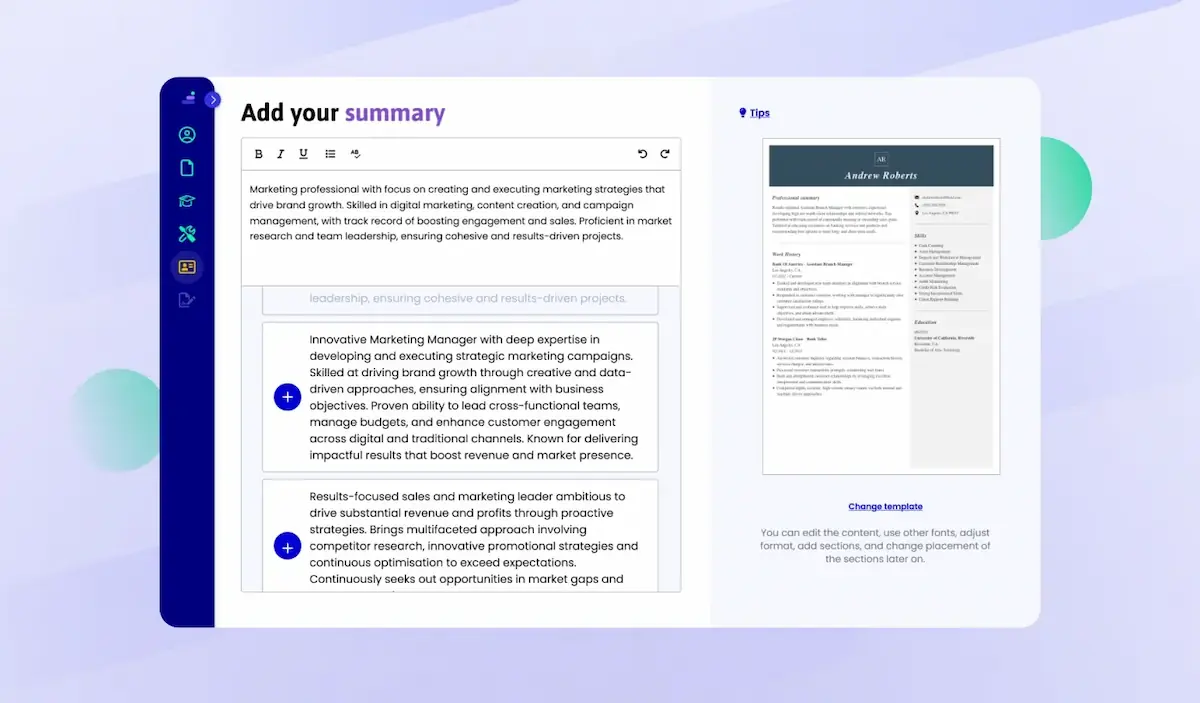
Keeping accurate and organised records helps you track progress, make informed decisions, and stay compliant with regulations. By using digital tools or structured systems, you make data easier to access and less prone to errors.
If you can handle multiple tasks at once without letting quality slip, you’re demonstrating strong multitasking skills. It takes focus, adaptability, and time management to get things done efficiently across different responsibilities.
Organisational skills go hand in hand with problem-solving, as structured thinking helps break down challenges and find effective solutions. Strong problem-solving skills improve decision-making and workflow efficiency.
You can improve productivity by identifying inefficiencies and simplifying processes. Optimising your workflow ensures that your time, tools, and energy are being used in the smartest way possible.
Being organised doesn’t mean being rigid. The ability to adjust plans and priorities in response to new challenges or unexpected changes is critical to staying productive, especially in dynamic roles and fast-paced work environments.
Now that you're familiar with the key organisational skills, let’s explore practical ways to strengthen them, helping you become a more effective and valued team member in the eyes of your employer.
Having well-defined goals gives direction and motivation. Whether it's a daily to-do list or a long-term project plan, set clear objectives to stay focused and organised. Break large tasks into smaller, manageable steps with specific deadlines so you can maintain continuous progress.
Leverage digital tools such as project management software (Trello, Asana), calendar apps (Google Calendar, Outlook), and task managers (Todoist, Notion) to improve your efficiency. These tools help you set reminders, track deadlines, and collaborate with colleagues more easily, so nothing slips through the cracks.
Not all tasks are equally important. Use techniques like the Eisenhower Matrix, which categorises tasks into urgent, important, both, or neither, to help you focus on what matters the most. When you learn to prioritise, you can manage your time and energy more effectively, reducing stress and unnecessary last-minute rush.
Creating a daily or weekly routine helps you stay consistent and efficient. Start your day by reviewing priorities, setting clear tasks, and following a structure that works for you. A solid routine keeps you focused, prevents overwhelm, and helps you stay productive.
When your space is cluttered, it’s harder to concentrate and easier to lose time. Keep your desk, digital files, and inbox organised so you can find what you need quickly. A clean, streamlined workspace helps you stay focused and work more efficiently.
To get more done in less time, try time management techniques like the Pomodoro Technique (working in short bursts with breaks) or time blocking (dedicating specific time slots for tasks). These methods help you stay focused and make the most of your day.
You don’t have to do everything yourself. Learn to delegate tasks to colleagues based on their strengths—it lightens your load and helps everyone work more efficiently. Delegation frees you up to focus on high-priority work and builds stronger teamwork.
Being organised doesn’t mean sticking rigidly to a plan. Unexpected challenges come up, and your ability to adapt while staying productive is key. When you stay flexible but grounded in your goals, you can adjust quickly without losing momentum.
Make time to check in with yourself. What’s working in your routine? What’s not? Regular reflection helps you spot opportunities to improve how you organise and manage your time. Small tweaks can make a big difference in your long-term productivity.
Staying organised takes commitment. Stick to your plans, meet your deadlines, and avoid distractions whenever possible. The more you build habits around discipline and consistency, the easier it becomes to stay in control of your time and workload.
Organisational skills are vital in the workplace as they boost productivity, efficiency, and overall job performance. Employees who manage time well, prioritise tasks, and maintain structured workflows can meet deadlines, reduce stress, and handle multiple responsibilities effectively.
These skills also make teamwork more effective by improving communication and coordination. They help businesses run more smoothly by reducing mistakes, using resources wisely, and keeping work on track. Whether you're in project management, admin, or customer service, strong organisational skills bring structure and improve overall performance.
Strong organisational skills are essential in nearly every role, from entry-level positions to managerial roles. They show employers that you can manage time, tasks, and resources effectively, making you a reliable and efficient team member. Highlighting these skills on your CV demonstrates your professionalism and adds to your appeal as a candidate.
Your CV profile—or CV summary—is the first thing a recruiter sees, so don’t wait until the skills section to showcase your organisational strengths. Incorporate examples of planning, coordination, and time management right at the start. Here’s how that could look in action:
Organisational skills examples in the CV summary
Highly organised and detail-oriented Administrative Assistant with over five years of experience in office management, scheduling, and document control. Adept at streamlining administrative processes to enhance efficiency and support business operations. Seeking to bring strong organisational skills and proactive problem-solving to Apex Solutions Ltd. to ensure smooth office functions and workflow optimisation.
The work experience section is where your organisational skills should stand out. Employers don’t just want to know that you’re “detail-oriented” — they want to see how your ability to plan, prioritise, and streamline tasks has made a real impact.
To make this section effective:
Job description with organisational skills
Customer Relations Officer
Thames Connect Energy, London
February 2020–Present
Key responsibilities
Key achievement:
You don’t have to be a CV writing expert. In the LiveCareer CV builder you’ll find ready-made content for every industry and position, which you can then add with a single click.

If you’re a student or just starting your career, you may not have a lot of professional experience to highlight just yet. In this case, make sure your education section focuses on relevant coursework, projects, or extracurricular activities that showcase your organisational skills. For instance, you could mention modules that involved scheduling, data management, or office administration. Alternatively, highlight activities where you organised meetings, coordinated volunteer teams, or helped manage office tasks.
Examples of organisational skills in the education section
BA (Hons) Business Administration
University of Manchester, Manchester
September 2013–June 2016
Your CV’s skills section should highlight the organisational abilities that make you an asset to employers. Rather than listing unrelated skills, focus on those that match the specific job you're applying for. Here’s how to make your skills section more targeted and impactful:
Organisational skills examples in the skills section
Incorporating additional sections into your CV can help you break away from the pack and showcase the distinctive strengths that set you apart from other candidates. This is a chance to showcase your organisational skills in addition to your core competencies. Here are some ideas that can make your CV more successful:
Examples of organisational skills in the extra sections
Certifications
Memberships
Languages
Interests
What makes a well-organised CV? Use real examples from your past roles to show how you handled various projects, coordinated with others, and dealt with priorities competently. Additionally, a tailored, well-written cover letter offers another chance to emphasise these strengths, showing how you can bring structure and efficiency to the role. Even with the rise of digital applications, most HR professionals still believe a strong cover letter is key to landing an interview.
Assuming your well-crafted CV has made a strong impression, it's time to demonstrate those skills in the interview. Focus on sharing real-life examples where you've effectively managed tasks, time, and resources. A recruiter may ask for specific instances where your organisational skills led to measurable improvements, such as streamlining workflows, coordinating schedules, or boosting efficiency. Be ready to provide detailed examples of these successes.
I recommend that you use the STAR method (Situation, Task, Action, Result) when describing them. Highlight tools or techniques you use, such as digital calendars, task management software, or automation tools. Additionally, showcase your adaptability by explaining how you prioritise tasks in high-pressure situations. Finally, you can highlight your organisational strengths by sharing positive feedback from supervisors or showcasing measurable achievements, like improved efficiency or fewer errors.
A cover letter alone simply won’t be enough—you need an impactful CV, too. Create your CV in minutes. Just follow our wizard and fill in every CV section with ready-made content. Get started by choosing a professional CV template.
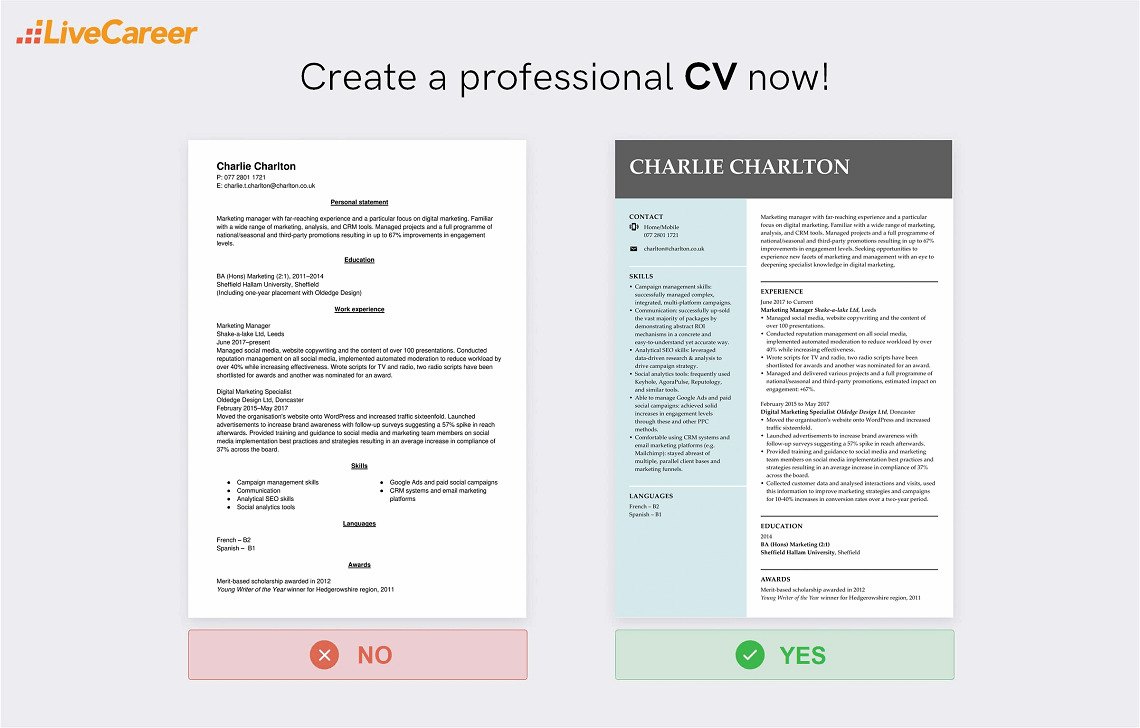
Thanks for reading! If you're still unsure how to highlight your organisational skills, or need guidance on incorporating them into your CV, feel free to reach out in the comments. We're here to assist you.
Our editorial team has reviewed this article for compliance with Livecareer’s editorial guidelines. It’s to ensure that our expert advice and recommendations are consistent across all our career guides and align with current CV and cover letter writing standards and trends. We’re trusted by over 10 million job seekers, supporting them on their way to finding their dream job. Each article is preceded by research and scrutiny to ensure our content responds to current market trends and demand.
Category: CV Help
Crafting a job-winning CV is all about showcasing your unique skills and experiences. Start with a strong personal statement that highlights your career goals and achievements.
Try Our CV Builder Now